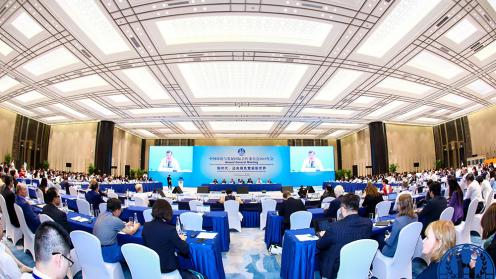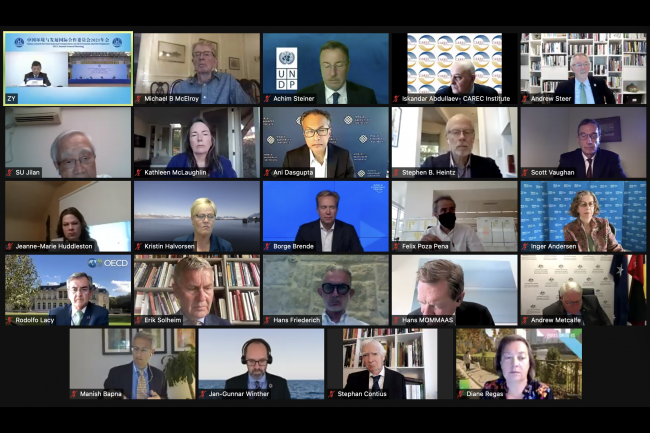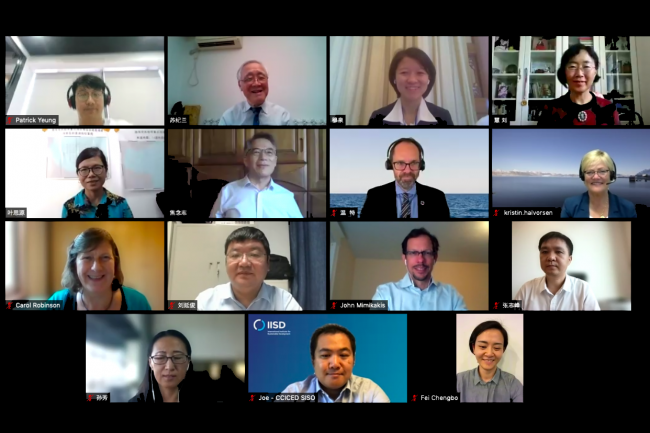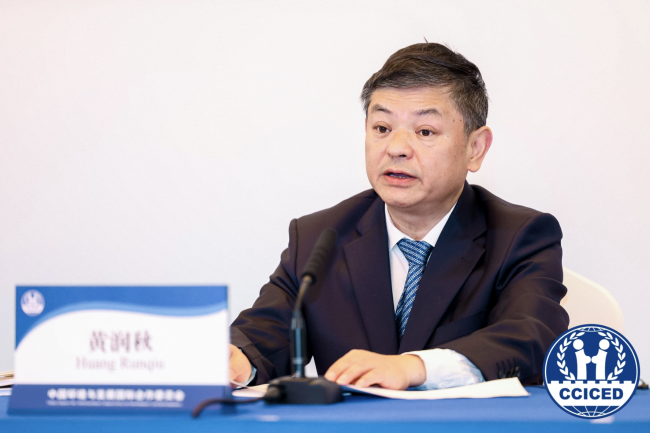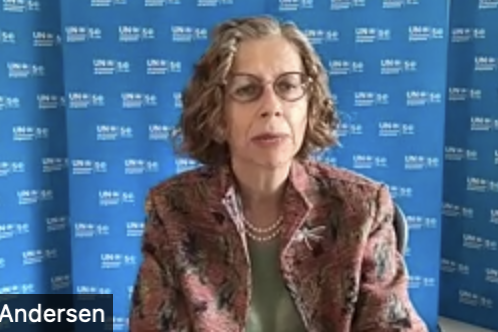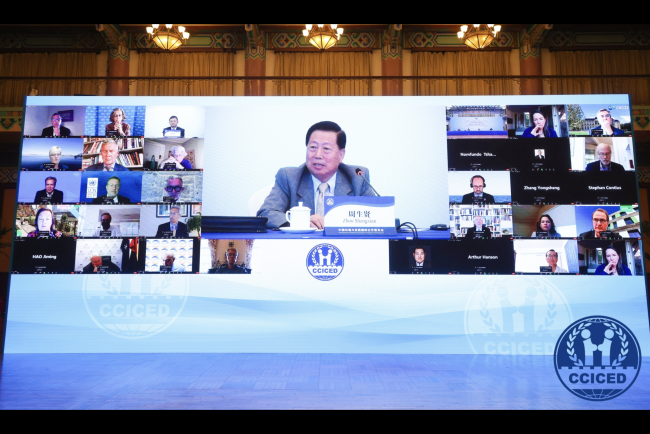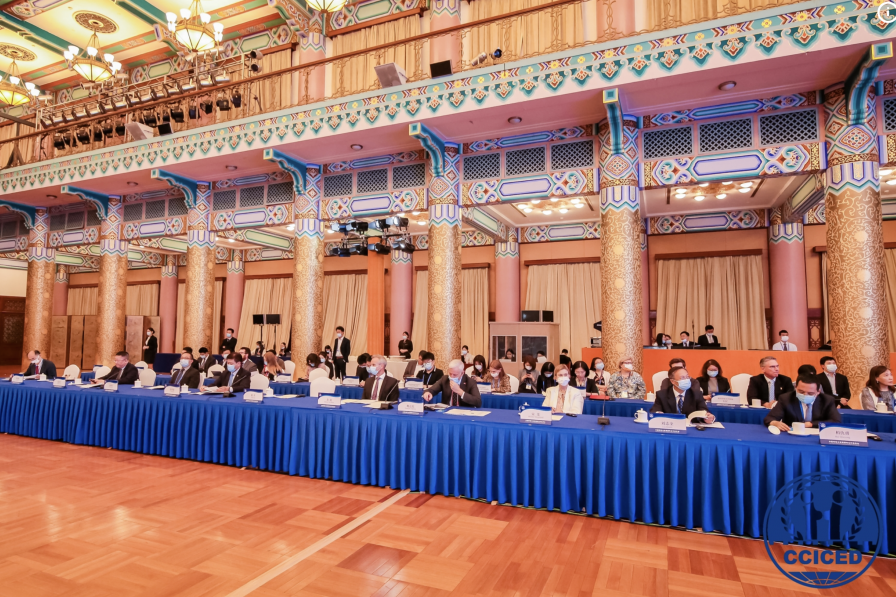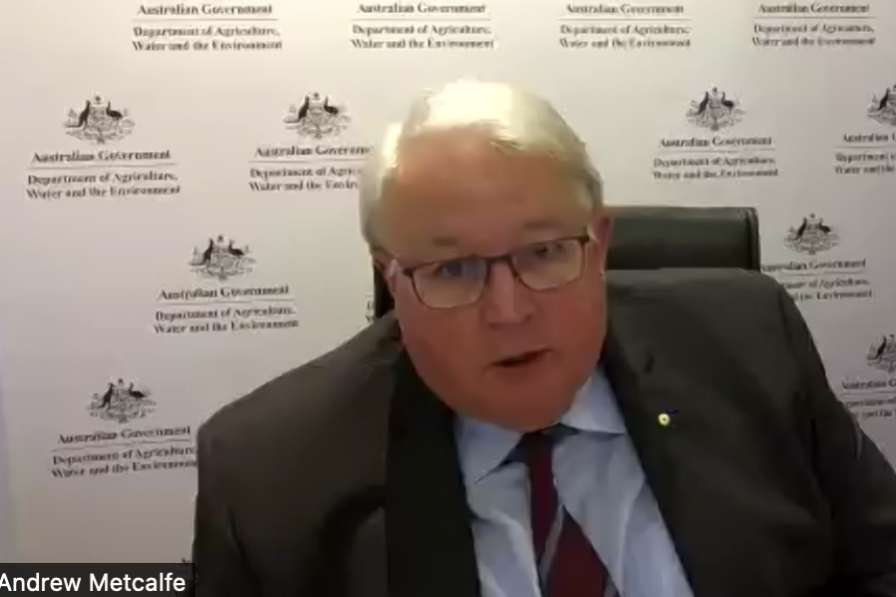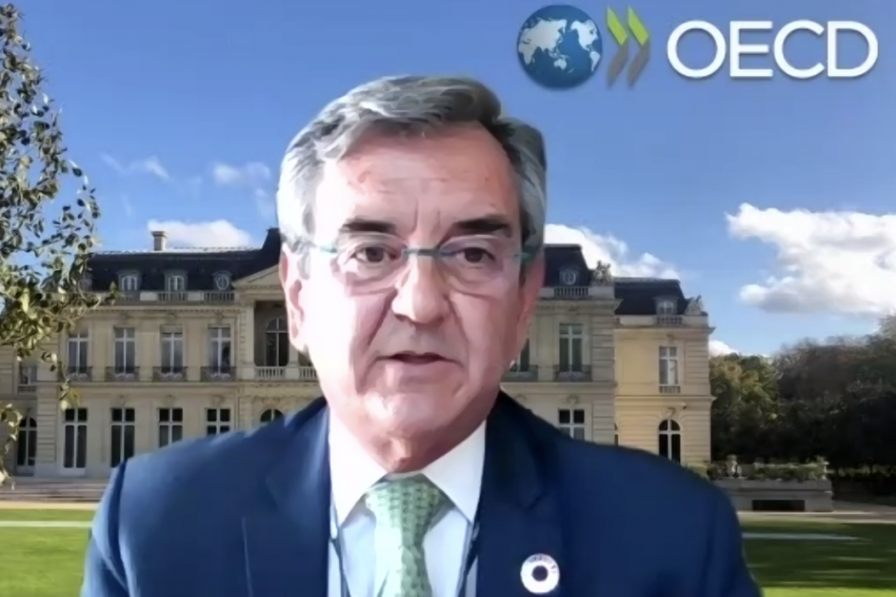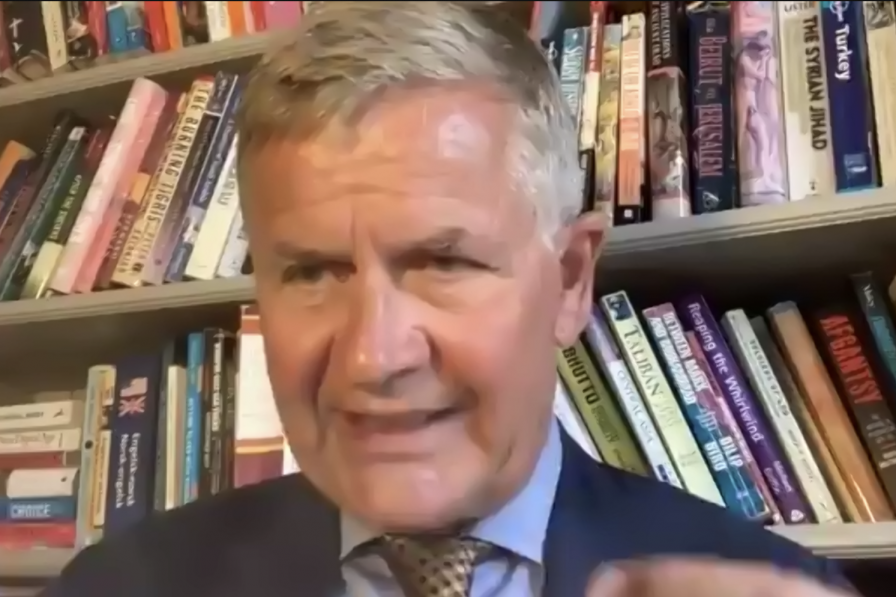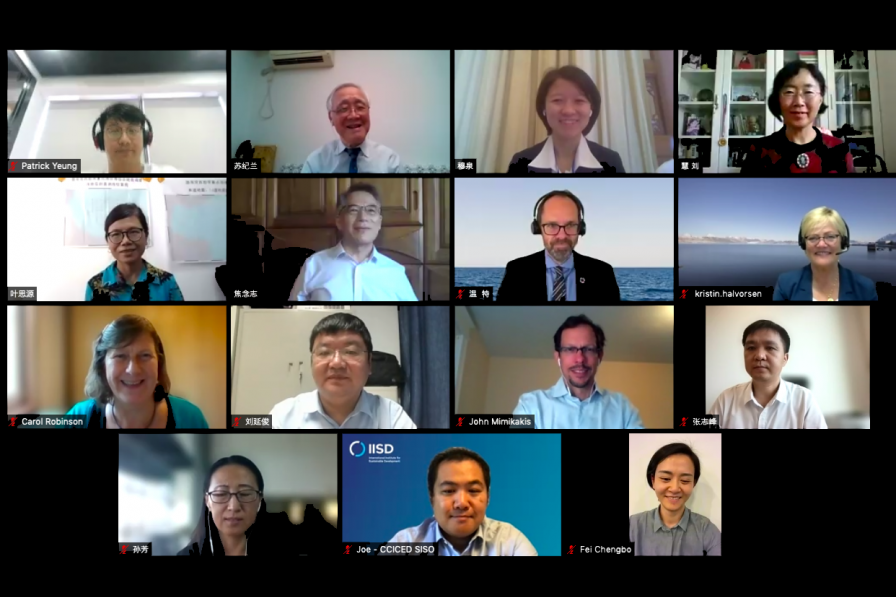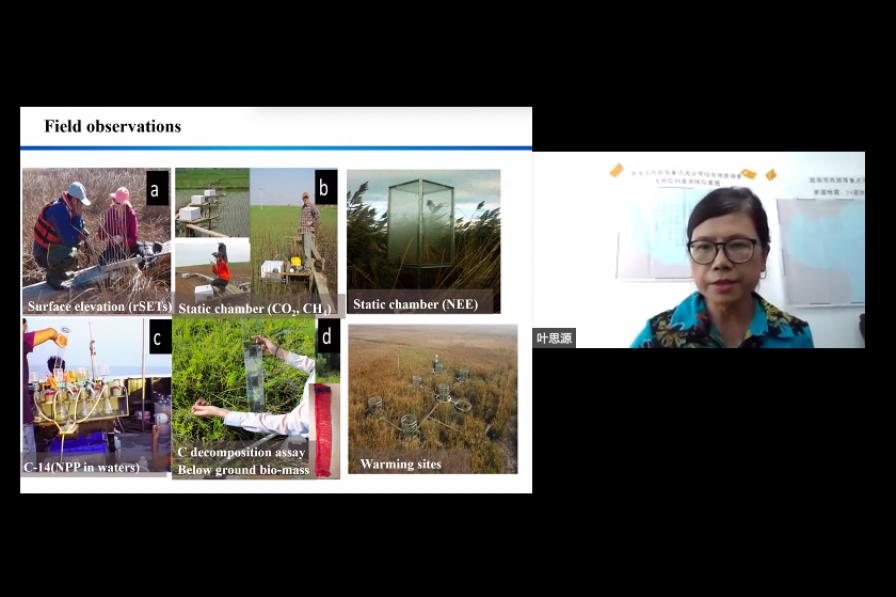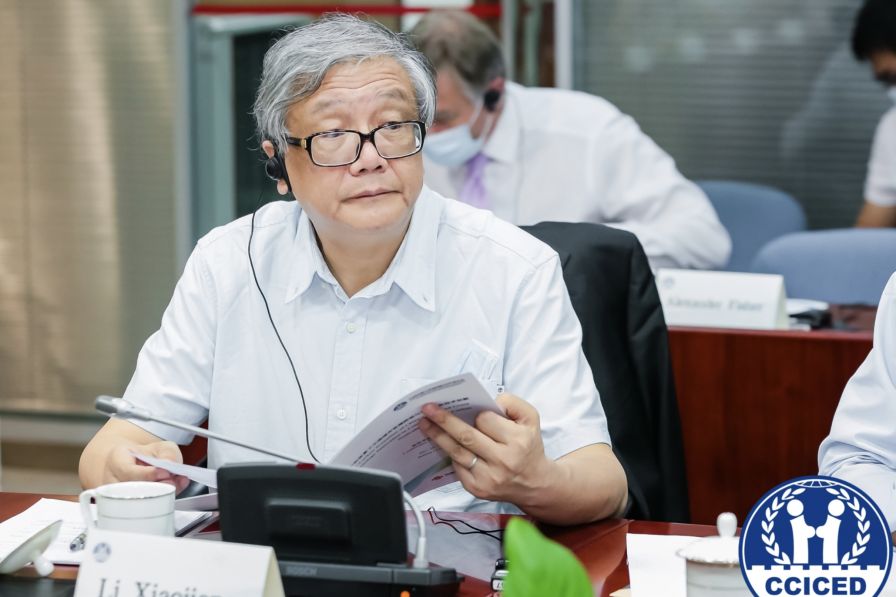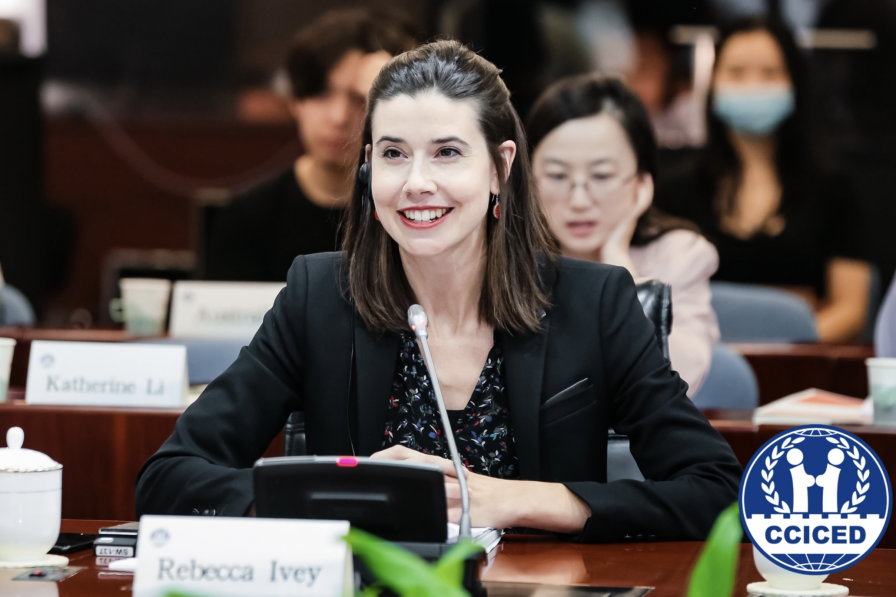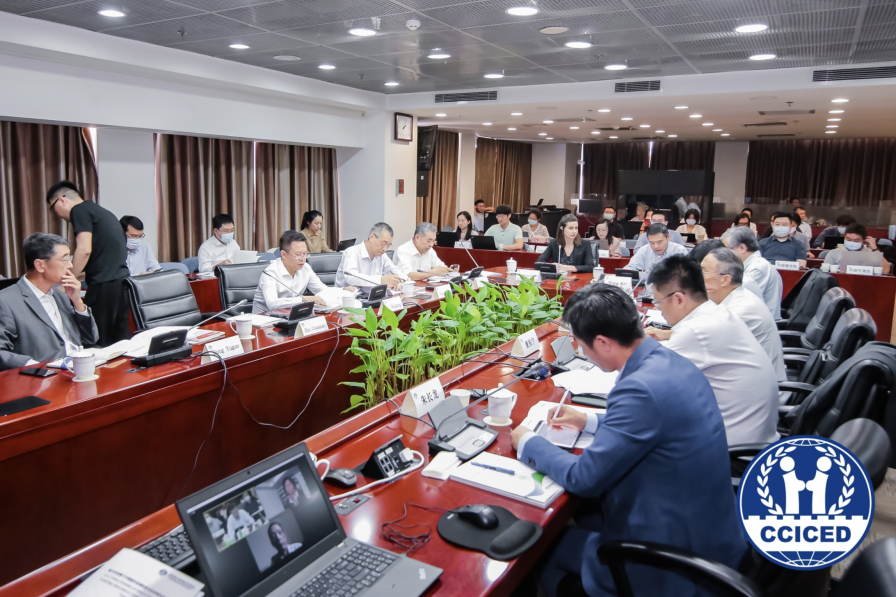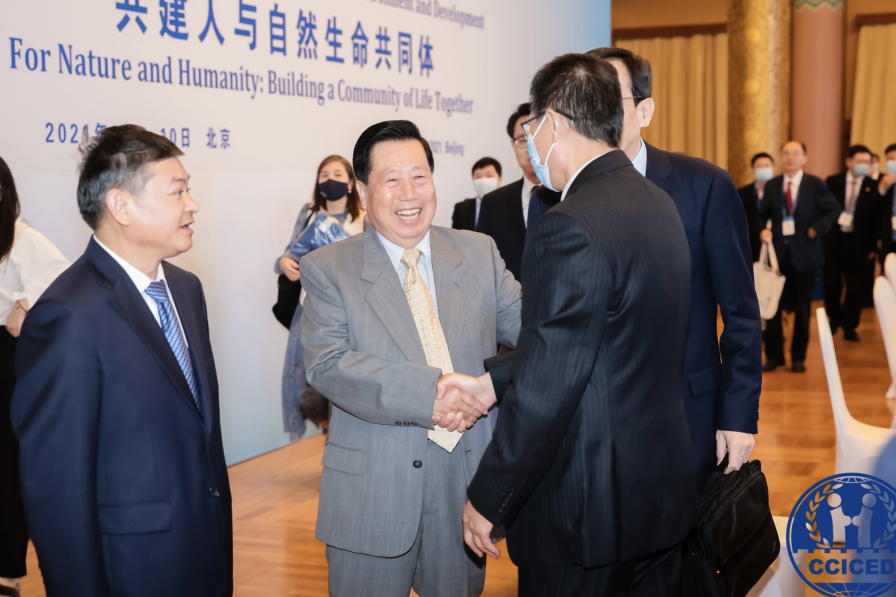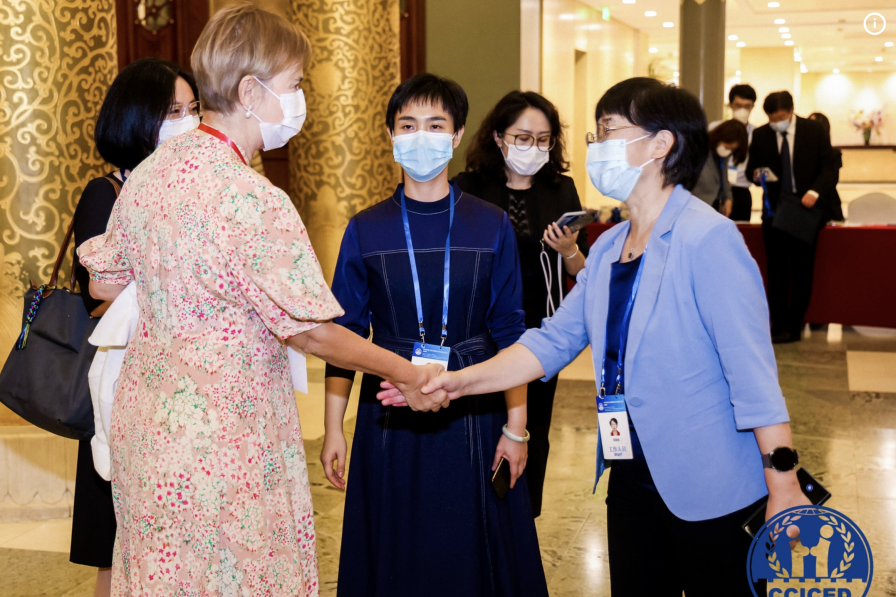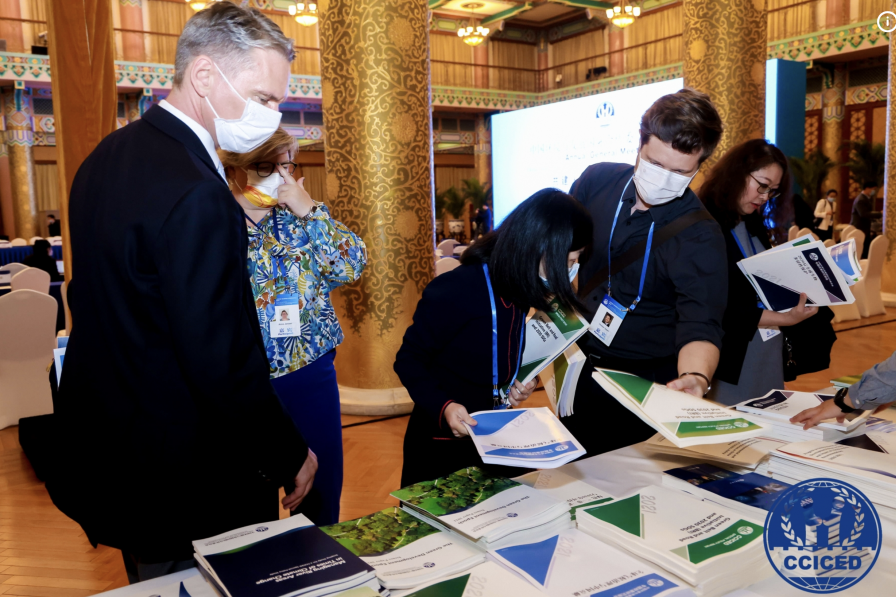With an ambitious agenda encompassing critical domestic and global issues, the 2021 Annual General Meeting of the China Council for International Cooperation on Environment and Development (CCICED) opened in Beijing, China.
Stakeholders from around the world joined both in-person and online to contribute to discussions and hear from policy experts speaking to the meeting’s theme: “For Nature and Humanity: Building a Community of Life Together.”
Participants were invited to participate in two open forums on Tuesday. The first, titled “Low Carbon Transition of China’s Cities and Green Technology Innovation in Communities for Carbon Neutrality,” addressed the findings and recommendations of a new report on green technology innovation published under the CCICED Special Policy Studies initiative. The three sessions of the forum were chaired by: WANG Kai, President of China Academy of Urban Planning and Design; Rebecca Ivey, Chief Representative Officer, World Economic Forum (WEF) Beijing Representative Office; and LI Xiaojiang, Chinese SPS Team Lead and former Dean, China Academy of Urban Planning and Design. Keynote speakers and panelists highlighted the contribution of the CCICED's work and partnerships to policy making in China.
The second, “Carbon Neutrality: The Role of the Ocean,” was co-organized by the Environmental Defense Fund, Friends of Ocean Action, and WEF, and was chaired by Jan-Gunnar Winther, CCICED member and Specialist Director at the Norwegian Polar Institute. In this session, participants addressed the role of the oceans in achieving carbon neutrality.
In the opening plenary session, policy experts from around the world discussed the opportunities for China’s leadership on global environmental crises, including climate change, pollution, and biodiversity loss. Several speakers highlighted the importance of China’s established targets related to carbon neutrality and the transition to renewable energy, and emphasized opportunities to build on these targets through business and trade relationships, the Belt and Road Initiative, and global governance processes. Many underscored the importance of integrating green policy initiatives across multiple sectors, highlighting the value of, inter alia, greening supply chains, investment decisions, and energy production.
Scott Vaughan, CCICED International Chief Advisor, introduced the CCICED Issues Paper, which was prepared by the Chief Advisors with the objective of setting the foundation for the Council’s research in the upcoming Phase VII (2022-2026) of its work. LIU Shijin, CCICED Chinese Chief Advisor, provided an overview of the draft policy recommendations for the Chinese government, including, inter alia: promoting economic change and pollution control in different sectors; promoting urban regeneration that will create a new paradigm for urbanization and rural revitalization; and coordinating domestic targets with the international governance process. He welcomed discussion of these issues throughout the remainder of the meeting.
Over the course of this four-day event, participants will have the opportunity to join a series of open forums and plenary sessions on a range of topics related to China’s work toward building a more harmonious relationship with nature and its potential for both domestic and global impact. The meeting will resume on Wednesday.
To receive free coverage of global environmental events delivered to your inbox, subscribe to the ENB Update newsletter.
Opening Plenary
Low Carbon Transition of China’s Cities and Green Technology Innovation in Communities for Carbon Neutrality
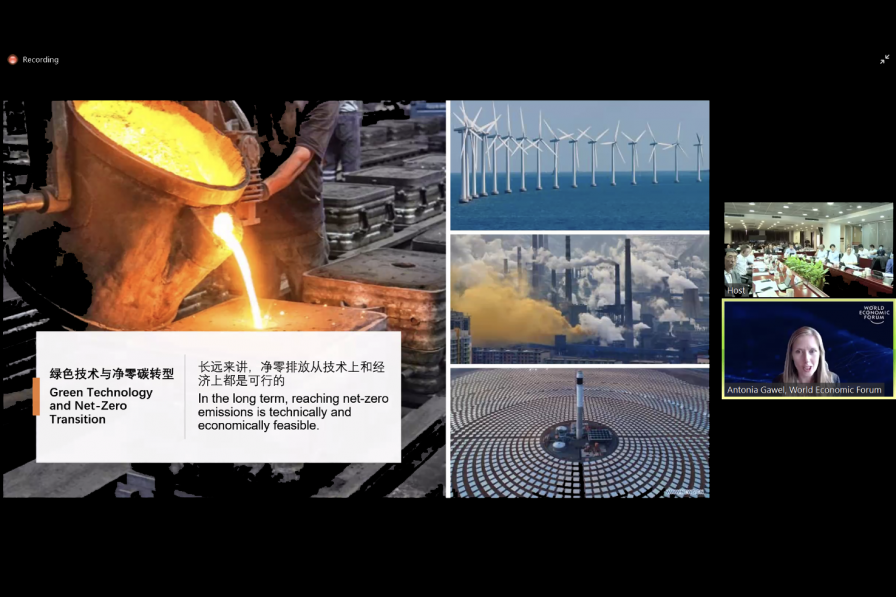
Presentation by Antonia Gawel, Head, Climate Action; Deputy Head, Platform for Public Goods, Member of the Executive Committee, World Economic Forum
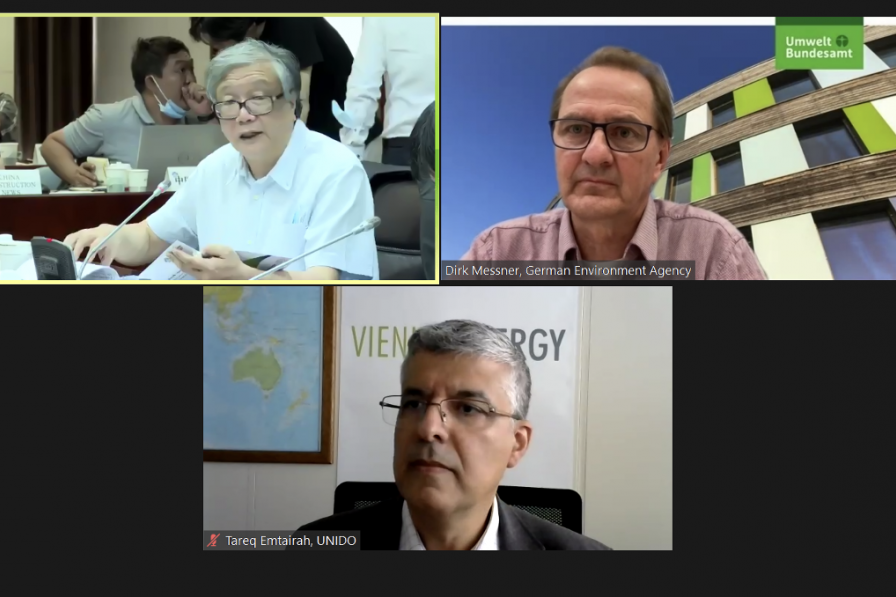
LI Xiaojiang, Chinese project lead of SPS on Major Green Technology Innovation and Implementation Mechanisms, and Former Dean of China Academy of Urban Planning and Design; Dirk Messner, CCICED Member, President, German Environment Agency; and Tareq Emtairah, Director, Department of Energy, UNIDO
